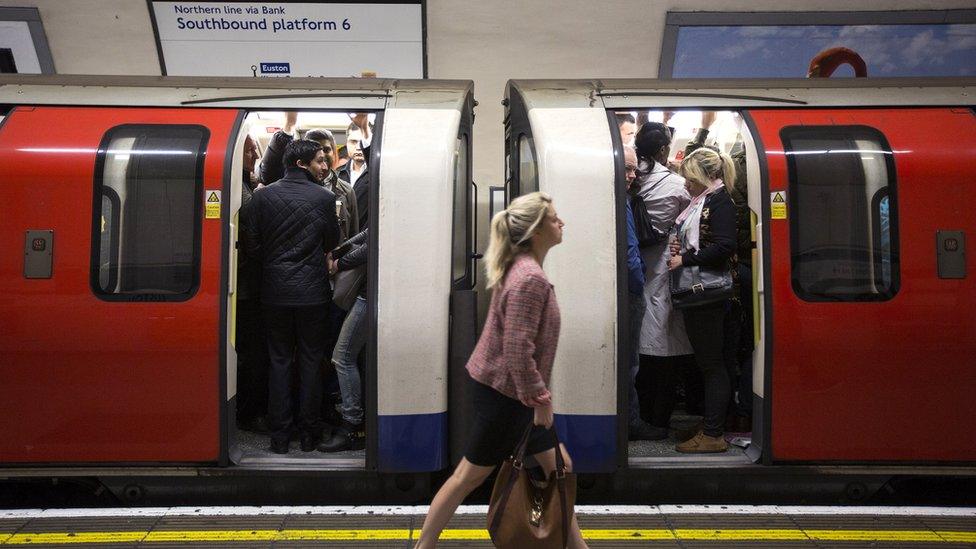Tfl business plan: Flab, uncertainties & the biggest overhaul ever
- Published
- comments
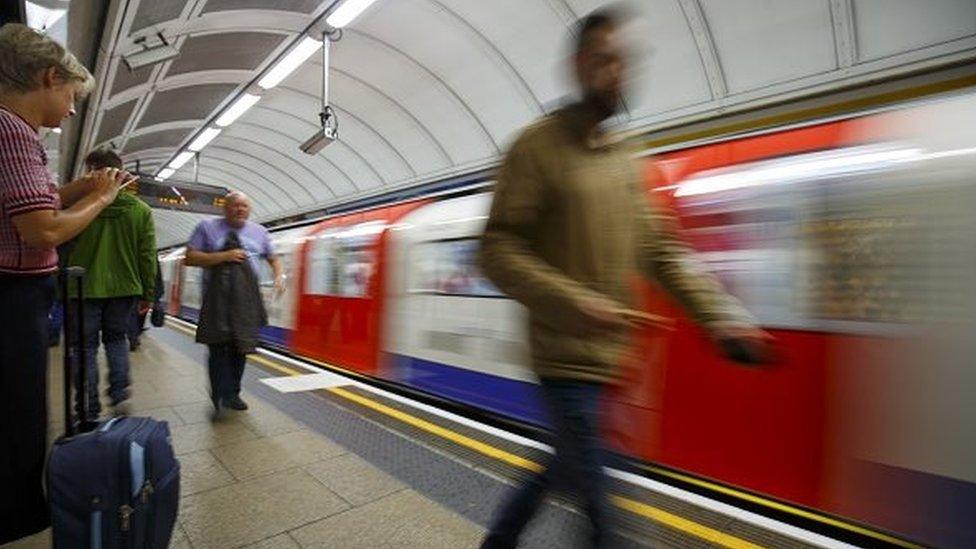
Sadiq Khan's business plan sets out his priorities over the next five years at Transport for London (TfL).
It highlights cycling, tackling pollution and protecting investment as key areas.
Scratch below the surface though and the unknowns are very clear.
TfL's business plan under the previous mayor, Boris Johnson, was based on fares going up at inflation (the retail price index - RPI) or RPI +1%.
That meant with a set income, big cuts were not necessary. That led to TfL becoming - according to Mr Khan - "flabby" and inefficient.
This business plan is different - that is not to say it isn't achievable - but the challenges are much larger.
Over five years there is the big cut of £2.8bn in the grant from central government, on top of that Mr Khan's TfL's fare freeze, costing £640m.
Money has to found for both.
Cuts
The mayor says he is bringing in efficiencies, but the cuts imposed by government are far bigger. And his agenda does make it difficult for him to criticise transport cuts of any sort.
So to balance the books, TfL will have to make cuts of £4bn out of its five year turnover of £45bn - or £800m a year.
Where the cuts will land are not yet completely clear but it will be "the biggest ever overhaul of our organisation" says the Transport Commissioner Mike Brown.
Broadly, we are told procurement from suppliers - it is hoped - will see huge savings, as will IT projects.
There will also be job losses. Some 49 senior managers have already gone and agency staff and consultants will also be reduced.
Crucially operating costs will also not be able to rise by much at all - even if inflation goes up.
Back on the buses
"To achieve our milestones we must increase the use of public transport in the short run, primarily by attracting customers back to the bus service," the TfL draft business plans says.
"In the medium term we must ensure the Elizabeth Line opens on schedule and carries the projected 232 million passengers a year, resulting in £0.7bn in fare revenue growth over the plan.
"This must be achieved while operating costs are held down by absorbing inflation and the additional costs of running the Elizabeth Line."
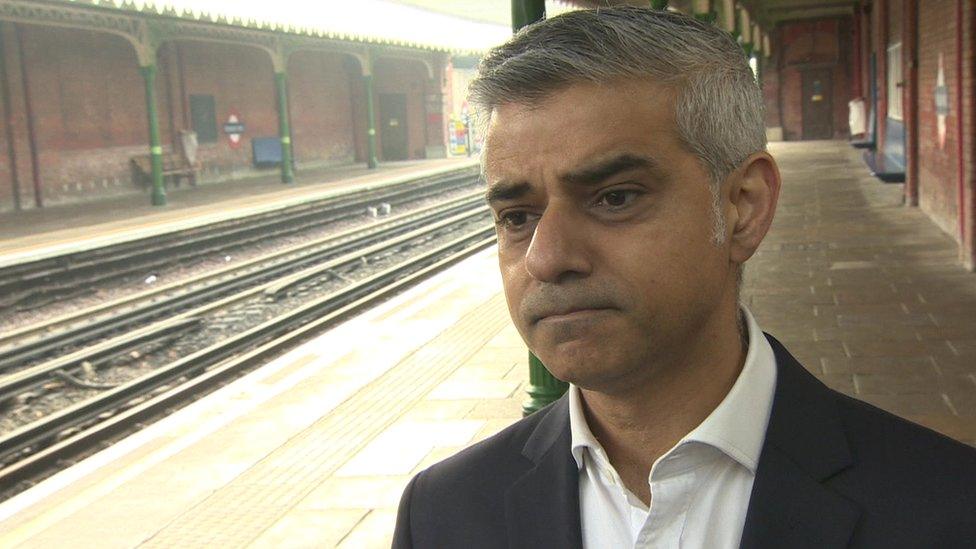
The business plan includes money set aside for TfL to takeover suburban train services in London as called for recently by Sadiq Khan
On the buses there has been a 5% drop in a passenger numbers. Rectifying that is mentioned a number of times.
The report says: "We must attract customers back on to our buses. This is vital because fares income represents, proportionately, a greater slice of total income.."
To do that the mayor needs to solve congestion in London which has seen average speeds drop to 7.8mph.
Congestion charge
That is extremely challenging - not many cities have done it - especially with many big construction projects in London and a growing population. Could we see the congestion charge increased?
The Elizabeth Line is another unknown. The plan expects it to generate more than £2bn in fares over the next five years.
That is without knowing the fare structure for the service.
There is also politics in the business plan.
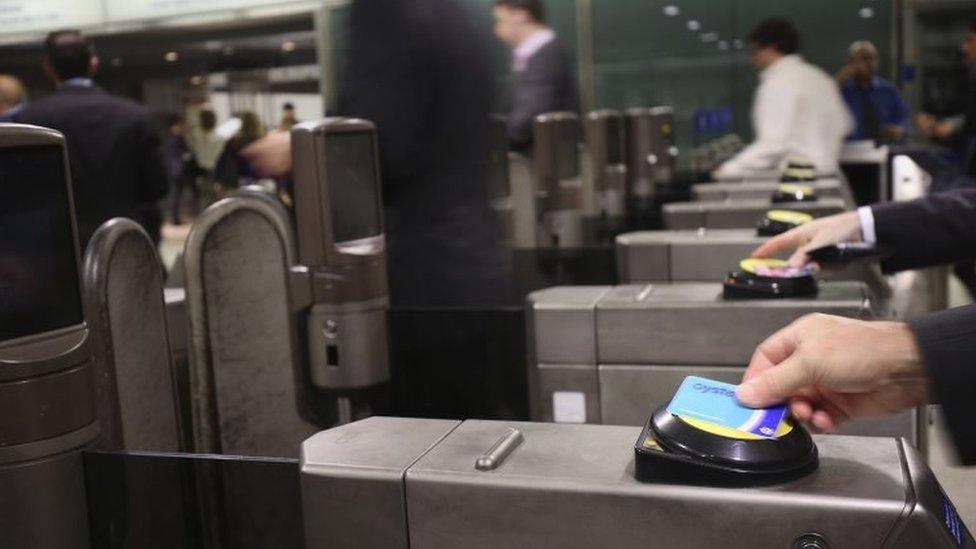
Some £20m is set aside to take over suburban rail services if the government changes its mind and decides to give TfL the Southeastern franchise.
On that issue the mayor is treading a thin line.
On the one hand he calls TfL "flabby", on the other he wants the government to hand over rail services to - by his own definition - an inefficient organisation.
This is a business plan of massive challenges.
Will it be achievable without commuters and Londoners noticing?
- Published24 November 2016
- Published6 December 2016
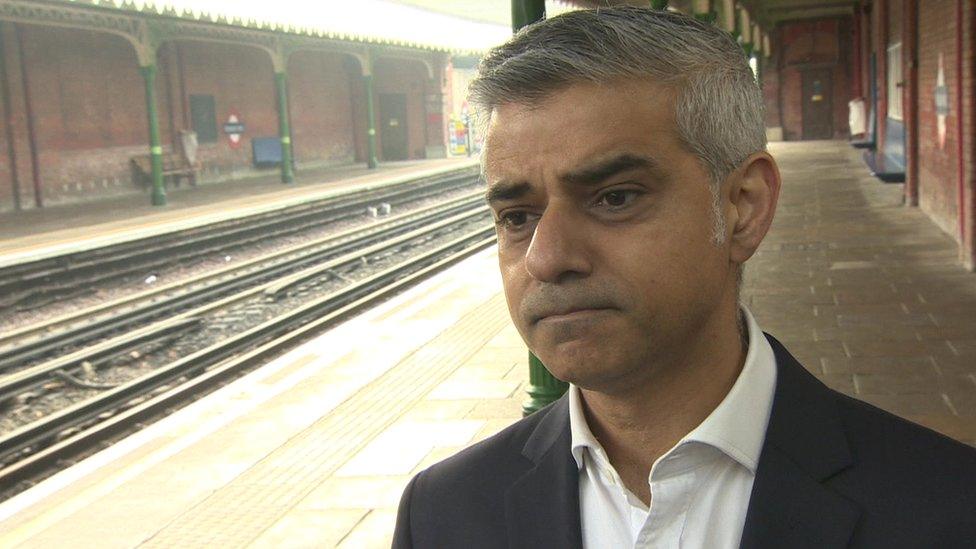
- Published8 December 2016
